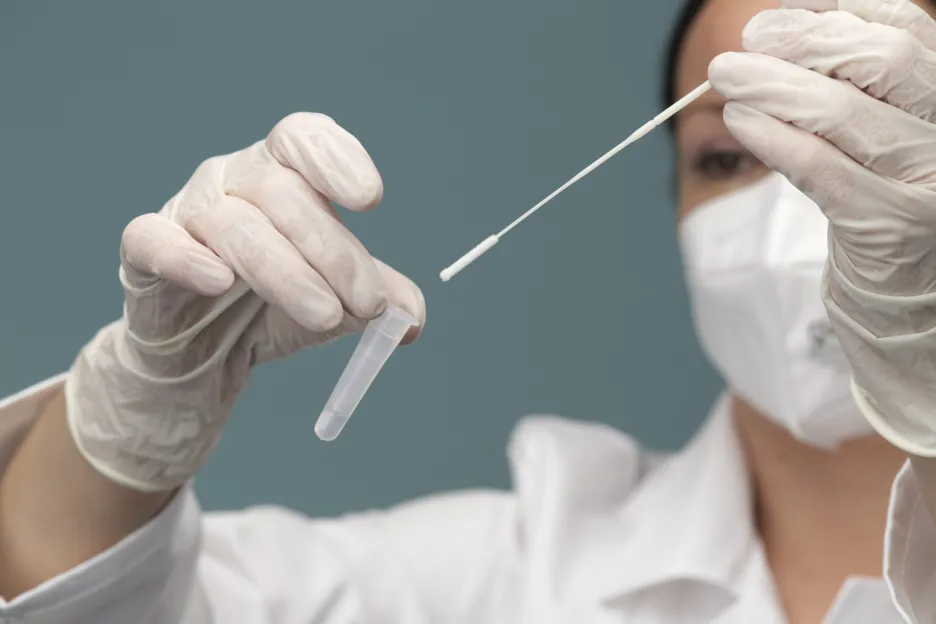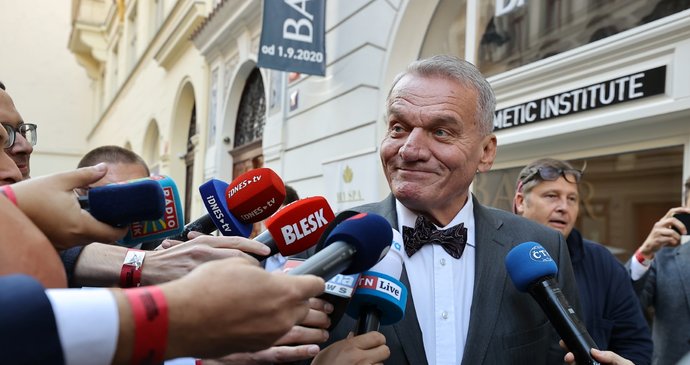From Monday, it will be easier to return from France, Spain or the Netherlands – ČT24 – Czech Television
Hungary, Poland and the Vatican will continue to be low risk areas in Europe. From non-European countries, Australia, Hong Kong, South Korea, Jordan, Canada, Qatar, Macao, New Zealand, Saudi Arabia, Singapore and Taiwan.
In the orange category will be Andorra, Denmark, Finland, France, Iceland, Italy, Luxembourg, Malta, Monaco, the Netherlands, Portugal, Slovakia, Spain, Sweden, the Balearic and Azores Islands and Madeira.
In the case of countries marked in green and orange, passengers must travel in the form of registered passengers and be tested before entering the Czech Republic or at least five days after passing the antigen or PCR test.
Belgium, Bulgaria, Estonia, Croatia, Ireland, Cyprus, Liechtenstein, Latvia, Germany, Norway, Austria, Romania, Greece, San Marino and Switzerland will be among the red areas with a high risk of infection. All unnamed countries belong to the dark red category indicating a very high level of risk, and Lithuania will be added.
When returning from a country with a high or very high level of risk, a PCR test in the Czech Republic is required at the earliest, but arrives on the 14th day after admission. Until then, the person must be self-insulating. Before returning, the test is only required if the person is using public transport. There is also an obligation to receive the form before use.
Return conditions do not apply to persons who have had vaccinations for two weeks or who have had covid-19 in the last 180 days. However, the obligation remains to receive the form.
The Czechia recognizes the vaccination of third-country nationals who have completed vaccination from a non-EU country with a substance approved by the European Medicines Agency (EMA) or already approved by the World Health Organization (WHO) for a new use. These persons must have a verifiable certificate issued, which is published in the list of certificates on the Ministry’s website. It can also be a vaccination from countries for which an implementing act has been concluded and a certificate can be issued in accordance with a European regulation.
The tests revealed 60 cases less than a week ago
Tests on Thursday revealed 488 cases of the disease in the Czech Republic, 60 less than a week ago. The reproduction number dropped to one, which is the line between slowing down and accelerating the epidemic.
The so-called incidence number, ie the number of newly confirmed cases of covid in the last seven days per 100 thousand inhabitants, is 28 cases, but there are significant differences between regions. The worst situation is still Prague with 48 infected per 100,000 inhabitants in the last week, followed by the Moravian-Silesian Region, where the incidence rose to 47. On the contrary, the best best situation is in the Hradec Králové and Liberec regions, where incidence numbers are 11. favorable epidemic situation in the Opava region with 86 diseases per capita.
This week, the number of most infected people was on Tuesday – almost 600, on Wednesday 524. On Monday and Thursday, the laboratories confirmed less than 500 positive tests, last week the average for weekdays was 510 infected.
However, for the development of the epidemic and better tightening of measures, the decisive factor now, rather than the number of detected infections, is how many people with coronavirus end up in hospitals and intensive care units. On Thursday, the ministry registered 164 hospitalized, which is the same as a week ago and a few less than the previous days of this week. Experts expect that thanks to vaccinations and how many people have already suffered from covid, the burden on hospitals will not be as enormous as last autumn or this spring.
However, the rate of vaccination has been declining for several weeks. On Thursday, medics delivered less than 9,800 doses of the hospital, about 11,800 a week ago. More than 5.9 million people in the country have completed vaccinations, or about 55 percent of the population. Applicants can now be vaccinated from the age of 12. People who are eight months after the end of vaccination are entitled to a booster dose. So far, we will use this opportunity for almost 1,900 people, who have about ten thousand, who are still affected. This year, more than a million people will be able to be vaccinated again.
Since last March, when the first proven coronavirus infections appeared in the Czech Republic, the Ministry of Health has registered almost 1.69 million cases of covid. Most people have already recovered from the disease, 30,451 people with covid have died so far.
It took a day to inoculate a percentage of the population in July, and ten days in September
Data from the Ministry of Health show that one percent of the population takes ten days to vaccinate against covid-19 in September, with one day enough in July. In the last five days, the vaccination rate of the population has remained only two tenths of a percent. Almost 20 percent remains to reach the 75 percent limit, which was set by the Minister of Health Adam Vojtěch (for YES) as a goal when it would be possible to put respirators in indoor spaces and public transport.
According to immunology by Václav Hořejší from the Institute of Molecular Genetics of the Academy of Sciences of the Czech Republic, it is not possible to count on so-called collective immunity in variants of the delta of a new type of coronavirus. “Unfortunately, the delta variant came, which is such that it infects even those vaccinated. It will not cause them a serious course, in the vast majority they will not even notice it. But they are infected on the nasal mucosa and can spread the virus to their surroundings, “he said.
According to him, classical collective immunity cannot be achieved, but he estimates that up to 90 percent of those vaccinated together with people who have already contracted the infection. “That’s why the current numbers of hospitalized and people in the ICU are so good,” he added.
On the profile of the information campaign Let’s put an end to coronavirus on Facebook, a call appeared on Wednesday to vaccinate nine percent of the population so that children in schools do not have to wear veils. These are currently compulsory only outside classes, for example in joint compulsory schools.
Other foreign students are vaccinated for the second time, the Czechia does not recognize their certificates
Other foreign students in the Czech Republic are repeatedly vaccinated against coronavirus because they are not recognized by the state as vaccinated with the same substance from their home country. When staying in dormitories, they must be tested every week without recognized vaccinations.
According to Mendel University in Brno, the state does not accept safety vaccination certificates from students from some selected countries, which are registered in the Czech Republic. “It is really absurd. The Czech state, for example, invites students from Georgia or Zambia to the Czech Republic and gives them a housing scholarship, on the other hand, it usually complicates their stay. However, if they live in privacy, they have no problems. The visa granted is conditional on accommodation in dormitories, “described Rector Danuše Nerudová.
Ninety students from Mendel University in Ghana, for example, have problems. “Most of them are deep in their pockets. If none are tested every week, they risk being expelled from the dormitory and fined us. Many of the students are solving this absurd situation by being vaccinated again in the Czech Republic, so they already have, for example, four doses of Pfizer, ”says Nerudová. According to her, the vaccine from Pfizer and BioNTech also vaccinates students from China who would not otherwise comply with Czech regulations.
The Ministry of Health has established a list of countries from which it recognizes vaccination certificates. In addition to the EU and US countries, there are about forty other countries.



